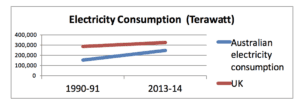Beyond Mr and Mrs Average
Recognising that each guest is an individual is the key to significant accommodation resource saving
Guest use of resources represents a very important opportunity for reducing resource use and emissions as they can consume 40-50% of a hotel’s water and use high levels of energy (a/c, lights) 1/2, in self-contained accommodation they would account for almost all the resource use. In other words guest behaviour has a significant impact on energy and water consumption and may actually represent a key channel for tourism to reduce its footprint. Guests also can have positive impacts on levels of waste recycling, selection of sustainable supply chain menu choices, use of infrastructure to prevent the use of energy e.g. drawing curtains and selection of low carbon transport options e.g. bicycles. However, there has been a degree of reluctance to directly approach guests with pro-environmental advice due in part to the hospitality ethos of exceeding guests’ expectations. Instead the accommodation sector and building management systems tend to report guest consumption as an average mean applied to a hotel’s baseline 3. But are we all the same?
Research demonstrates that overall guests are aware of climate change, interested in selecting eco-friendly hotel options, prepared to make some adjustments though not willing to compromise the quality of their experience 4,5,6,7,8,9. However, this does not indicate they aren’t prepared to make any contribution to resource reduction. We are also perhaps doing them a dis service by grouping all guests into one ‘average’ basket of consumption. The averaging of guest consumption camouflages their real actions. An average mean does not provide a helpful measure to target persuasive communication because it standardises all guest to a single unit of consumption. It does not reflect their true individual consumption which varies even between nationalities 10. Therefore we should recognise they are individuals with their own behaviour characteristics.
Guests are not aware of their consumption
While there has been much written about climate change and the need for reduced consumption, energy is still being consumed in ever increasing quantities (Table 1). This is despite the installation of energy saving devices because as new social phenomenon become accepted activities so our overall consumption grows invisibly e.g. mobile phone, computers and home entertainment systems. Further extreme weather events put additional strain on resources at peak times.

Table 1: Electricity Consumption Comparison 1990-2014
Source: Bureau of Resources and Energy Economics and Dept. Energy and Climate Change
Just as households are unaware of how much energy they are consuming at any given moment they also do not measure their water usage. At Chepu Ecolodge in Chile guests are rationed to 40 litres of water per day for their showers. Most guests (98% form N. America and Europe) are surprised by their actual consumption and enjoy the challenge to use their ration. For some though, it might mean actually taking longer showers. Take for example the showers at Booderee National Park in Australia, where a timer turns off your water after 5 minutes. For some rural Australian‘s that means they actually have longer showers and use more water than they would do at home. A shower study in South East Queensland reveals that one third of the households used 2/3 of the water 11. Many households actually had showers for less than 5 minutes meaning those who showered for over 12 minutes distorted the total making an average shower length not representative.
Likewise guest energy and water footprints can therefore be significantly different without the guests actually realising they consume in any dramatically different way than other parties in another room/apartment/cottage during the same period.
To emphasis the value of monitoring and evalauting individual guest consumption compare the usage profiles of two different sets of guests staying in the same cottage two weeks apart Chart 3. This shows two sets of guests and the mean average per night. On the left Mr & Mrs Prudence stayed on 28 & 29 September used 3 kwh of electricity per night, 357 litres of LPG and 321 litres of water. They maintained their cottage at 22.6C. On the right I show Mr & Mrs Indulgence who consumed almost three times the electricity, twice the gas and water and heated their cottage to 31C.
The figures for the other three cottages on the same property are different again. The average mean therefore bares no resemblance to individual guest consumption.
To reduce guest consumption we must target the exact times of use. Mr & Mrs Prudence deserve encouragement. Mr & Mrs Indulgence require an alternative message. If only average mean figures are used then some guests may actually use more resources. This could contribute to the rebound effect.

Chart 3 Comparison of two guest parties and the Average for guests staying in that cottage
The opporunity to achieve more sustaianble goals for your own is to measure guest consumption and apply persuasive communication techniques.
To Change, or not to Change? Measuring and persuading are the answers.
References
- City of Melbourne (2007) Water Wise Hotels
- City of Melbourne (2007 Energy Wise Hotels
- Becken (2005) Harmonising climate change adaptation and mitigation: The case of tourist resorts in Fiji
- Han et al., (2009) Empirical investigation of the roles of attitudes toward green behaviours, overall image, gender, and age in hotel customers’ eco-friendly decision-making process
- Han et al. (2010) Application of the Theory of Planned Behaviour to green hotel choice: Testing the effect of environmental friendly activities
- Kim & Han (2010) Intention to pay conventional-hotel prices at a green hotel – a modification of the theory of planned behaviour
- Lee et al., (2010) Understanding how consumers view green hotels: how a hotel’s green image can influence behavioural intentions
- Han & Kim ( 2010) An investigation of green hotel customers’ decision formation: Developing an extended model of the theory of planned behaviour
- Millar et al (2012) Hotel Guests’ Preferences for Green Guest Room Attributes
- Wang (2013) Energy consumption characteristics of hotel’s marketing preference
for guests from regions perspective
- Willis et al,. (2010) Alarming visual display monitors affecting shower end use water and energy conservation in Australian residential households


